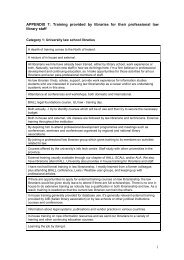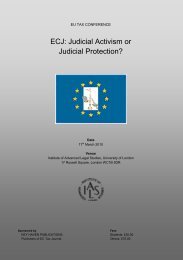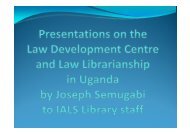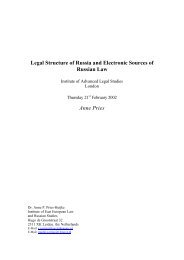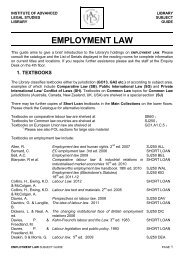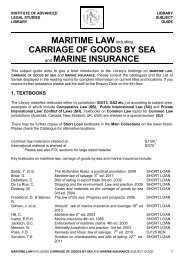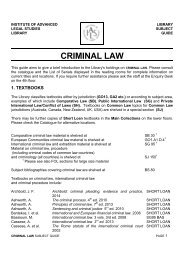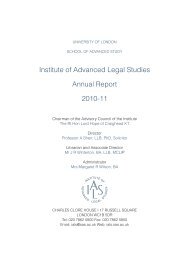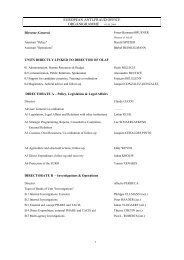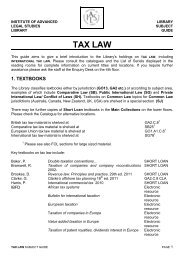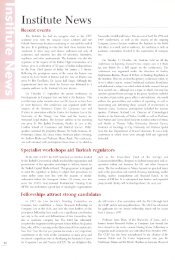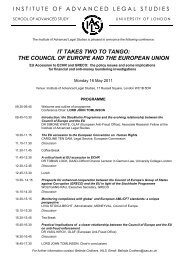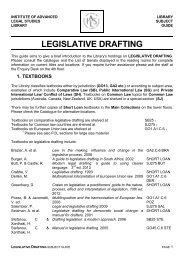a thesis - Institute of Advanced Legal Studies
a thesis - Institute of Advanced Legal Studies
a thesis - Institute of Advanced Legal Studies
Create successful ePaper yourself
Turn your PDF publications into a flip-book with our unique Google optimized e-Paper software.
INVALIDATING CAUSES. 79<br />
upon good (which here means valuable) consideration and bond fide,<br />
a conveyance may be set aside under it, even though for value, if<br />
shown to be fraudulent.<br />
A. Conveyances for Value.—Trusts created for valuable consideration<br />
are found in ante-nuptial settlements. These may be<br />
void under the statute if made with intent to delay creditors,<br />
unless they are made bond fide and the beneficiary has no notice <strong>of</strong><br />
the fraud.<br />
Illustrations.<br />
1. A. by ante-nuptial settlement assigns property to trustees<br />
upon trust for himself until bankruptcy, and then over to B. The<br />
settlement is void, and A.'s trustee in bankruptcy is entitled to the<br />
property. Higginbotham v. Holme (1811), 19 Yesey, 88.<br />
2. A. has cohabited with a woman for seven years. Being in<br />
insolvent circumstances and intending to secure his property from<br />
his creditors, he marries the woman, and by an ante-nuptial settlement<br />
assigns the whole <strong>of</strong> his property to trustees upon trust for<br />
his wife, with a joint power to them to appoint amongst their<br />
children. The woman is aware <strong>of</strong> the facts. The settlement is<br />
void. Columbine v. Penhall (1853), 1 Sm. & Griff. 228; Bulmer v.<br />
Hunter (1869), L. B. 8 Eq. 46.<br />
3. A. executes an ante-nuptial settlement <strong>of</strong> all his property on<br />
B., whom he subsequently marries. The only object <strong>of</strong> both A.<br />
and B. is to endeavour, under cover <strong>of</strong> the marriage, to put A.'s<br />
property out <strong>of</strong> the reach <strong>of</strong> his creditors. The settlement is void.<br />
In re Pennington, Ex parte Cooper (1888), 59 L. T. 774.<br />
B. Voluntary Conveyances.—It was formerly thought that, if the<br />
effect <strong>of</strong> the settlement were to deprive the settlor <strong>of</strong> the means<br />
<strong>of</strong> paying his then existing debts, an intent to defraud must be<br />
presumed in the case <strong>of</strong> a voluntary settlement. (Freeman v. Pope<br />
(1870), 5 Ch. App. 540.) It is certain, however, that the court is<br />
not bound to presume an intent to defeat or delay creditors merely<br />
because they are defeated or delayed as a necessary consequence <strong>of</strong><br />
the settlement. A settlement which has this effect will be good if<br />
it appears from the evidence that the settlor had no such intent.<br />
(Exparte Mercer, In re Wise (1886), 17 Q. B. D. 290.)



